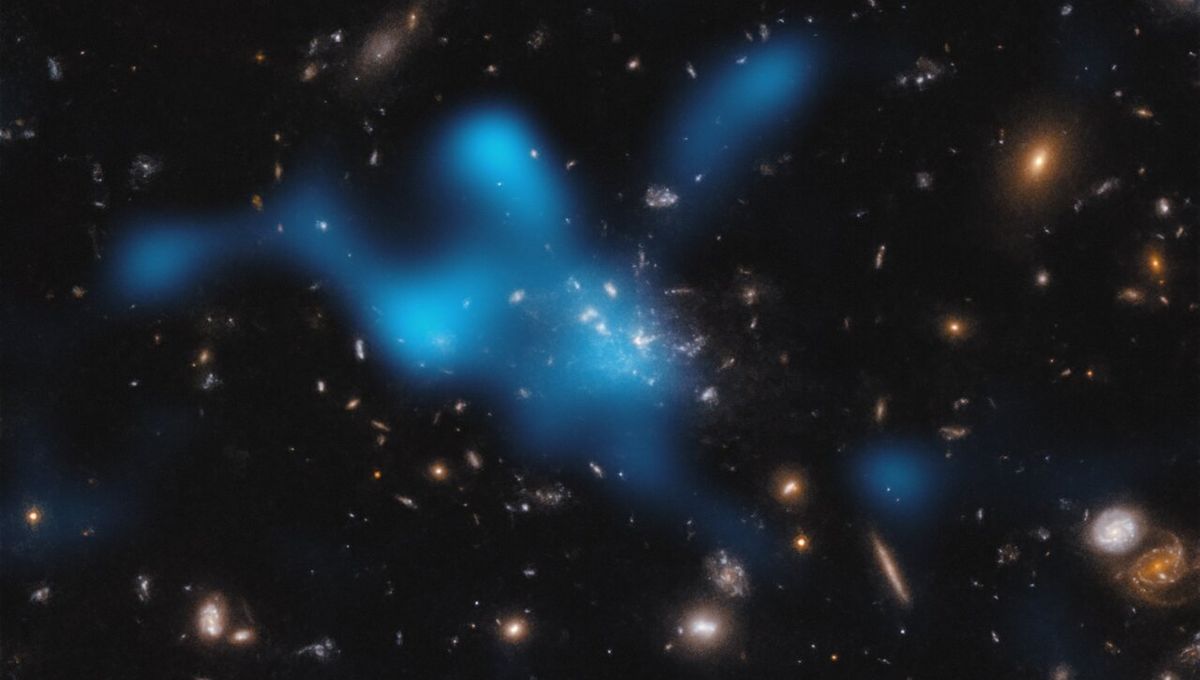
Astronomers have determined the presence of extremely hot gas in a cluster of galaxies being born. The team reported that the whole system of gas, galaxies, and dark matter is about 100 trillion times the mass of the Sun. Most of this mass is in the gas within this nascent cluster, which has been heated to the stupendous temperature of tens of millions of degrees.
The group, known as the Spiderweb protocluster, was formed when the Universe was just 3 billion years old, making this the most distant measurement of such hot gas yet. The observations were possible thanks to the Atacama Large Millimeter/submillimeter Array (ALMA) in combination with the oldest light in the universe: the cosmic microwave background (CMB).
The CMB is the so-called echo of the Big Bang, the first light that was free to move as the universe expanded and cooled down. The photons – particles of light – that make up this ancient emission are all around us and can be affected but what they pass through.
One such effect is the thermal Sunyaev-Zeldovich (SZ) effect. The hot gas is full of high-energy particles and these can interact with the photons of the CMB and give a little energy boost to the photon. This changes the color of the photons – an effect that is measurable.
“At the right wavelengths, the SZ effect thus appears as a shadowing effect of a galaxy cluster on the cosmic microwave background,” lead author Luca Di Mascolo, a researcher at the University of Trieste, said in a statement. “Thanks to its unparalleled resolution and sensitivity, ALMA is the only facility currently capable of performing such a measurement for the distant progenitors of massive clusters.”
Gas is heated as it falls toward the cluster, and the hot gas will destroy the cooler gas present in the baby galaxy cluster. This process was predicted to happen using models and these new observations are strengthening those original hypotheses.
“Cosmological simulations have predicted the presence of hot gas in protoclusters for over a decade, but observational confirmations has been missing,” explained co-author Elena Rasia, a researcher at the Italian National Institute for Astrophysics (INAF) in Trieste. “Pursuing such key observational confirmation led us to carefully select one of the most promising candidate protoclusters.”
Future observatories, such as the Extremely Large Telescope working in tandem with ALMA, might be able to provide even more detail about the formation of these large collections of galaxies.
The paper is published in Nature.
Source Link: The Most Distant Detection Of Hot Gas Heralds The Birth Of A Cluster Of Galaxies